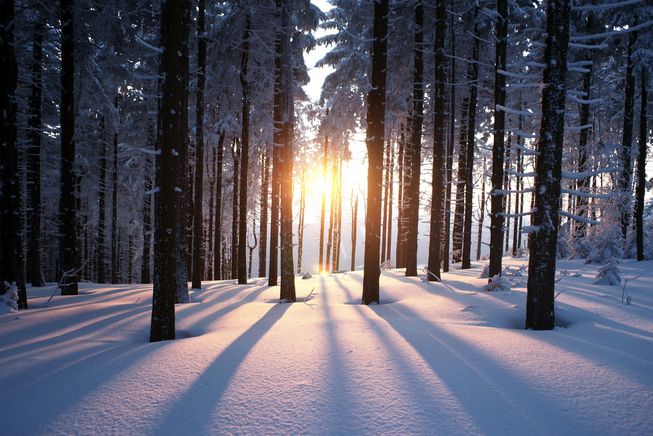
Cold Air Can Be Dangerous
Breathing cold air is almost impossible to avoid during the winter months, but there are known health risks everyone should know about before going outdoors.
You know the temperature is low if you can see your breath after you exhale. The water vapor in the moist air you inhaled condenses into a white cloud after you breathe it out whenever the thermometer registers about 45F or lower.
As a rule, before you venture forth into cold weather, dress in warm, layered clothing. Protect your hands with gloves. Wear a wool hat or other protective head covering. Put on waterproof boots or shoes. Bundle up in a scarf.
The idea behind wearing insulated clothing in layers when it’s extremely cold outdoors is simple: keep warm by trapping the body heat you generate inside your garments. Most body heat is lost through the head and feet.
Lengthy exposure to very cold weather can lead to hypothermia (low body heat) and frostbite (frozen skin and tissues).
Other dangerous medical conditions may be triggered by breathing in cold air. For example, some people may find that frigid air triggers an asthma attack. “Signs of weather-induced asthma include coughing and wheezing and an inability to catch your breath,” according to ABC News.
If you have a breathing disorder (such as asthma), a dose from a Proventil inhaler before going outside will ease the spasms that accompany breathing in cold air.
Everyone can protect their delicate respiratory system by covering the mouth and nose with a warm scarf or muffler. The insulating layer helps warm the air you breathe in, protects the lungs and prevents airways from snapping shut.
Cardiologist David Frid, MD, cautioned that very cold air can speed up your heartbeat. This, in turn, elevates your blood pressure. All of this is perfectly natural but could cause trouble for those with weak hearts and/or lungs:
“The body’s first reaction is to try to keep warm. So blood vessels constrict to keep in the heat. The heart also beats faster, which can increase blood pressure. All of that can have an impact on the heart.”
The heart has to work much harder to keep your body warm when you inhale freezing air. The additional strain on your cardiac system may lead to a seizure or other life-threatening condition.
Pulmonologist Rachel Taliercio, DO, added that people who have chronic obstructive pulmonary disease (COPD) need to be especially careful outside during cold spells:
You might be more breathless, or feel out of breath, you might cough or start to wheeze. You also may feel a bit of tightness in the chest. All of these can be signs that you should get indoors.”
The average normal body temperature for us humans is 98.6F. Hypothermia occurs when the body’s core temperature falls below 95F. This happens whenever your body loses more heat than it absorbs from the environment.
Signs of hypothermia include:
- Lack of coordination
- Mental confusion
- Slowed reactions
- Shivering
- Sleepiness
The American Heart Association (AHA) has linked hypothermia with heart failure. In fact, cardiac arrest is the #1 cause of death in hypothermia cases.
Cold air is dry air. Breathing in cold air can feel painful. Normally, this sensation goes away after a few breaths. The lungs inside healthy people are usually able to get used to cold air fairly quickly.
Prevent excessive strain on your heart whenever you perform strenuous exercise or activities outside in the cold. If you are a die-hard runner, please take it easy if your breathing becomes labored – or you may die hard from a stopped heart.
Residents of cold-weather states such as Minnesota report that the mercury can plummet to -40F! Despite these arctic conditions, avid outdoor runners continue to work out all winter long.
The same is true of high-altitude mountain skiers and Scandinavian ice skaters. They usually suffer no ill effects from breathing in freezing air. In fact, they say it is invigorating.
For the rest of us – especially those who aren’t in such excellent physical condition – when shoveling snow, take breaks to let the heart rate go down. Pace yourself.
Another tip is to stay hydrated by drinking water and warming beverages. Caffeinated and alcoholic beverages both take water out of the body – they are dehydrators. Some experts recommend drinking one glass of water for every glass with caffeine or alcohol consumed, in order to prevent dehydration.
To wrap all this up – so to speak – be sure to play it safe when outside during winter conditions: drink plenty of water, dress for cold weather, pay attention to your heart and lungs, and don’t overdue physical activities.

Recent Comments